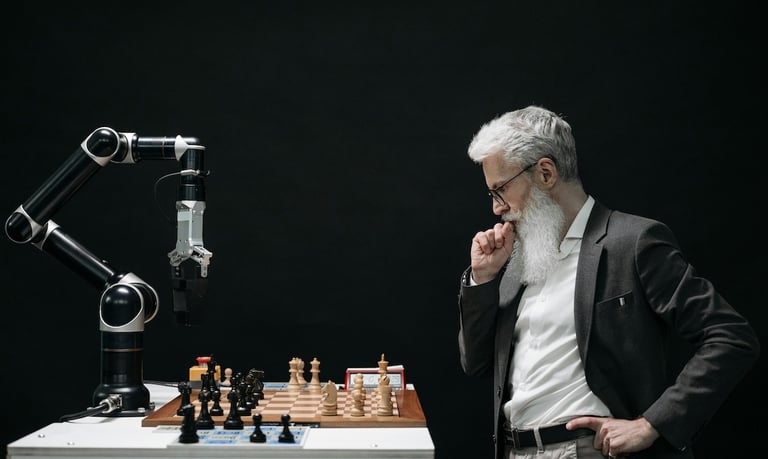How Artificial Intelligence Can Enhance Longevity
TECHNOLOGY


Explore How Artificial Intelligence Can Enhance Longevity
Discover the transformative potential of artificial intelligence (AI) in extending human lifespan and improving quality of life. From precision medicine to personalized healthcare solutions and AI-driven elderly care, this blog explores the latest advancements and ethical considerations in using AI to enhance longevity. Join us as we delve into the future of health and wellness through the lens of cutting-edge technology.
In the realm of longevity, technological advancements are continuously pushing the boundaries of what's possible. One of the most promising technologies in this regard is artificial intelligence (AI). From precision medicine to personalized healthcare solutions, AI is revolutionizing the way we approach aging and longevity. In this blog post, we'll explore the various ways in which artificial intelligence can enhance longevity and contribute to a healthier, longer life.
Understanding Longevity and Artificial Intelligence
Longevity, in simple terms, refers to living a long life with a focus on maintaining good health and wellness. AI, on the other hand, is the simulation of human intelligence in machines that are programmed to think and learn like humans. When these two powerful concepts merge, the possibilities are endless.
AI in Precision Medicine
Precision medicine aims to customize healthcare, with medical decisions, treatments, practices, or products being tailored to the individual patient. AI plays a crucial role in analyzing large sets of data to identify patterns, interactions, and outcomes, enabling healthcare providers to offer personalized treatment plans. This approach not only enhances the effectiveness of medical treatments but also minimizes adverse effects, ultimately contributing to better health outcomes and extended lifespans.
### Personalized Healthcare and AI
AI-driven algorithms can analyze an individual's genetic makeup, lifestyle, and environmental factors to provide personalized health recommendations. For instance, wearable devices equipped with AI can track vital signs and provide real-time feedback on an individual's health status. This constant monitoring allows for early detection of health issues, thereby preventing diseases before they become severe.
### AI and Aging Research
The study of aging, known as gerontology, is another area where AI is making significant strides. Researchers are leveraging AI to analyze vast amounts of biological data to better understand the aging process at a molecular level. This understanding could lead to the development of targeted therapies that slow down or reverse aging, potentially increasing human lifespan.
### AI-Powered Virtual Assistants in Elderly Care
AI-powered virtual assistants are becoming increasingly popular in elderly care. These assistants can remind individuals to take medications, monitor their daily activities, and provide companionship. Moreover, AI can analyze speech patterns and detect early signs of cognitive decline or other health issues, prompting timely intervention and improving overall quality of life.
### Ethical Considerations and Challenges
While AI holds immense promise in the field of longevity, there are ethical considerations and challenges that need to be addressed. For instance, ensuring data privacy and security is crucial when dealing with sensitive health information. Additionally, there is a need to ensure that AI-driven solutions do not exacerbate existing health inequalities but rather, contribute to equitable access to healthcare for all.
### The Future of Longevity and AI
Looking ahead, the integration of AI into the field of longevity is expected to accelerate. Advancements in AI technology will likely lead to more accurate predictions of health outcomes, more effective treatments, and better overall management of age-related diseases. As AI continues to evolve, it will become an indispensable tool in the quest for longer, healthier lives.
### Conclusion
In conclusion, artificial intelligence has the potential to revolutionize longevity by personalizing healthcare, advancing aging research, and improving elderly care. While there are challenges to overcome, the benefits of AI in extending human lifespan and improving quality of life are undeniable. As researchers and innovators continue to explore the intersection of AI and longevity, we can expect remarkable advancements that will redefine what it means to grow old. Embracing AI in the pursuit of longevity promises a future where aging is not only prolonged but also characterized by vitality and well-being.
For more insights on longevity and the latest advancements in AI, stay tuned to our blog and join the conversation on how technology is shaping the future of health and wellness.
